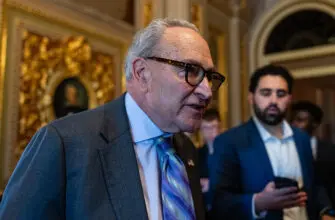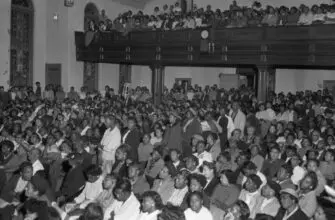In celebration of the third-annual TIME100 Climate list, business leaders, politicians, and advocates convened in Rio de Janeiro, Brazil, for a TIME100 Impact Dinner on Tuesday, November 4, to recognize those driving innovative and actionable change against global warming. Amid overwhelming uncertainty and following a devastating hurricane in the Caribbean, the event highlighted the work of climate leaders making up for the lack of global governmental action, with several offering toasts focused on urgent solutions and persistent hope.
The first toast called for “equitable” financial action. Jennifer Geerlings-Simons, President of Suriname, noted that despite her country’s “natural wealth” of rich forests, it is also “among the nations most vulnerable to climate change,” citing coastal areas already experiencing rising sea levels. Since her election in July, Geerlings-Simons has prioritized the protection of Indigenous and tribal lands and responsible forest management. She pointed out that Suriname is one of only three countries globally that absorbs more carbon dioxide than it releases. She used her moment to call for “timely, fair, and equitable climate finance” and a commitment from others to take urgent action against climate change impacts.
Peter Fernandez, co-founder of Mombak, a carbon-removal company in the Brazilian Amazon, spoke next, addressing the difficulty of avoiding the Amazon tipping point. Fernandez admitted that the climate challenge is so enormous that “it’s easy to feel helpless. It’s easy to lose hope.” However, he sees both macro and micro reasons for optimism. On a macro level, he argued that climate action is economically “rational” for society. “It is true that it’s going to cost us trillions of dollars to prevent the world from heating up out of control,” he said. “But allowing the world to heat up out of control will cost us tens of trillions of dollars in damages.” On a micro level, he noted that in his work, he’s seen that “when you give local communities an alternative to deforesting the Amazon, they take it.” Fernandez concluded that hope is essential, as it “gives us the energy to solve problems” and “the resilience to bounce back from the inevitable failures.”
Famed marine biologist, ocean explorer, and conservationist Sylvia Earle, 90, began her toast with a salute to the past: “If we did not have those in the past who learned things and passed them along one generation to the next, where would we be?” Earle, who leads the organization Mission Blue, said that because of the knowledge gathered by previous explorers, today’s youth “are the luckiest children ever to arrive on Earth.” She emphasized that the best time to make a difference is now. “I wish that I could be around 15 years from now, 100 years, 1,000 years, to look back on this time,” she said. “Because it’s right now we have the best chance, the best opportunity … to make a difference.”
Elizabeth Wathuti, the 30-year-old founder of Green Generation Initiative (GGI), reminisced about her childhood in Kenya, “where rivers ran clear and fast, and the air smelled of rain and life.” Traveling across Africa today, she now sees mostly dry riverbeds. Despite “the pain of nature’s destruction,” she feels hopeful due to her belief in the youth. She stressed that restoring the planet requires not only conscious global citizens but also a crucial “partnership of the senior and the young generation.” Through GGI, Wathuti nurtures the next cohort of climate leaders; the organization recently received funding from the Scottish government to mentor 25 young African climate leaders. She ended her toast by encouraging attendees “to act with youthful courage and childlike hope.”
Bob Keefe, executive director of E2, a national nonpartisan group of business leaders advocating for environmental policies, discussed how technology is now solving the climate crisis. Drawing on his two decades as a tech journalist, he recalled being skeptical of early visions from leaders like Steve Jobs and Jeff Bezos, but noted how quickly that technology changed the world. “That’s where we are with clean energy,” he said. “Technology has finally caught up with the problem of climate change.” Keefe’s work at E2 puts business at the forefront of the fight, proving that climate change is not just a political or social issue, but fundamentally “an economic issue.” He thanked the “innovators, catalysts, financiers, titans of industry, world leaders, local leaders” in the room for enacting climate action.
Alaa Murabit, a physician and global strategist, gave the penultimate toast. Murabit, a 2024 TIME100 Health honoree, has spent years in the health sector, which taught her “that the climate crisis is fundamentally a human crisis.” She emphasized, “Long before becomes a policy or financing challenge, it is a health challenge.” Recognizing the difficulty of the fight, she shared advice from her father: “It is not your job to believe that you can do everything. It is your job to do something.” Murabit defined hope as “a discipline. It is a strategy. It is an active choice we make, to make decisions that leave the world better than we found it.” She urged attendees to “change reality for people on the ground” by funding locally led solutions, strengthening frontline health systems, and ensuring women and girls are centered in every climate decision and dollar of climate finance.
For the final toast, Eduardo Paes, the Mayor of Rio de Janeiro, honored his fellow local leaders, raising a glass to mayors and governors around the world who “turn global promises into local action.” Since 2008, Paes has led numerous ambitious efforts to make Rio a more sustainable city, including converting municipal buildings to clean energy and launching Brazil’s first Extreme Heat Response Protocol. His goal for the next year is to replace 100% of the city’s buses with low- or zero-emission vehicles. Paes concluded, “Cities are where life happens, and where the battle against the climate crisis will be won or lost,” toasting those leading the fight on the ground.









